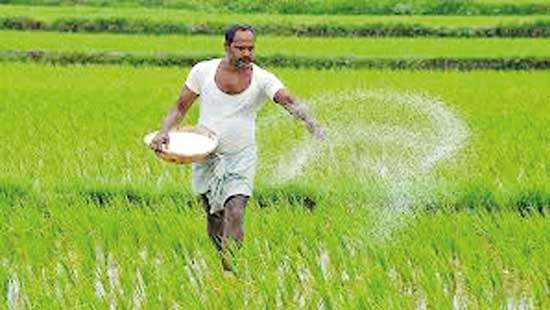- Agriculture sector contracts four quarters in a row before recording the largest contraction of 8.4% in 2Q22
The disastrous organic fertilizer pivot, which peaked in the second quarter of this year, has plunged Sri Lanka’s agricultural sector into unprecedented decline, creating a massive food crisis in the country.
Analysis of data dating back to 2016 showed that the area did not reach current depths even during the worst extreme weather conditions experienced in 2016 and 2017.
And even during the pandemic, the sector rebounded quickly after a brief setback in the first two quarters of 2020.
The agricultural sector contracted by 5.5% and 4.0%, respectively in the first and second quarters of 2020, before registering a strong rebound of 3.9% in the following quarter.
The sector continued to grow and pick up pace during the second quarter of 2021, until the organic fertilizer shock started sending shockwaves through the sector.
For example, the sector experienced a strong growth of 6.4% in the first quarter of 2021, followed by a still robust growth of 11.2% in the second quarter of the same year, before the government put a brake on the use of chemical fertilizers. As a result, many farmers have given up on growing their crops while others have agitated against the ban on chemical fertilizers, while the government has missed out on the promised supply of organic fertilizers.
The agricultural sector, which contracted for the first time by 2.8% in the third quarter of last year, continued to deepen its decline to 3.1% in the last quarter of 2021 and to 6.8% in the first quarter of 2022, before losing up to 8.4% in the last quarter ended in June compared to a year ago. The government made an embarrassing admission of its policy blunder and backtracked in November last year to restore the supply of chemical fertilisers.
However, it never returned to its former supply levels and instead experienced severe fertilizer shortages from the start of the year, due to the crippling shortage of dollars and soaring fertilizer prices, exacerbated by the Russian-Ukrainian war.
Lately, the government has succeeded in ensuring a continuous supply of fertilizers through donor funding and prioritizing limited foreign exchange expenditures on fertilizers to ensure that the country avoids severe food shortages.
In releasing second quarter GDP data, the Census and Statistics Department said the deeper decline in the agricultural sector was due to the 32.3% contraction in cereals, the 19.7% decline in tea , the 15.6% drop in paddy, the 15.3% drop in sea fishing, the 13.7% drop. in rubber and 13.6% and 13.2% in animal production and vegetables, respectively.
However, freshwater fishing, plant propagation and agricultural support activities, the cultivation of oilseed fruits including coconut, forestry and logging, perennial crops and spices are developed during the quarter under review compared to a year earlier.











More Stories
Sri Lanka’s post-harvest losses in agricultural sector exceed Rs. 55 billion – – The island
SAU Vice-Chancellor emphasizes effective research in agricultural sector
Agriculture sector threatened by climate change, expert says – Pakistan